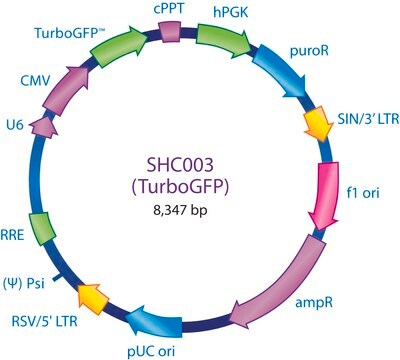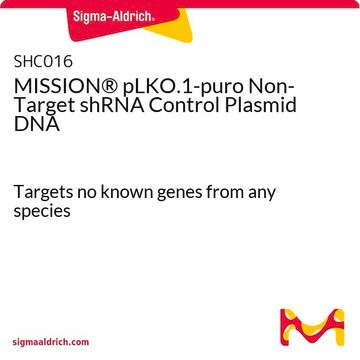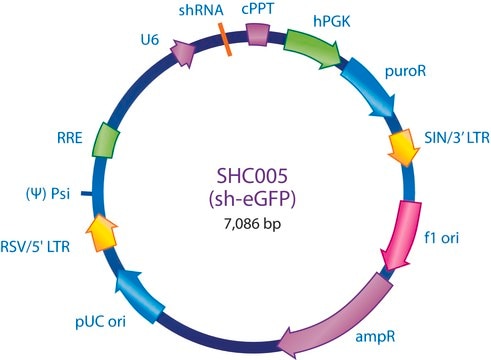SHC012
MISSION® pLKO.1-puro-CMV-TagRFP™ Positive Control Plasmid DNA
Contains a gene encoding TagRFP
Synonym(s):
MISSION® Control Vectors
About This Item
Recommended Products
Quality Level
product line
MISSION®
concentration
500 ng/μL in TE buffer; DNA (10μg of plasmid DNA)
shipped in
dry ice
storage temp.
−20°C
Looking for similar products? Visit Product Comparison Guide
Related Categories
General description
Application
The MISSION TagRFP Control Vector is an 8594 base pair lentivirus plasmid vector that contains a gene encoding TagRFP, under the control of the CMV promoter. The CMV-TagRFP Control Vector is useful as a positive control in experiments using the MISSION shRNA library clones.
Legal Information
recommended
Storage Class Code
10 - Combustible liquids
WGK
nwg
Flash Point(F)
Not applicable
Flash Point(C)
Not applicable
Choose from one of the most recent versions:
Certificates of Analysis (COA)
Sorry, we don't have COAs for this product available online at this time.
If you need assistance, please contact Customer Support.
Already Own This Product?
Find documentation for the products that you have recently purchased in the Document Library.
Customers Also Viewed
Articles
When shRNA is delivered using lentiviral vectors, the sequence encoding the shRNA is integrated into the genome and the knockdown effect is passed on to daughter cells, continuing gene silencing.
Our team of scientists has experience in all areas of research including Life Science, Material Science, Chemical Synthesis, Chromatography, Analytical and many others.
Contact Technical Service